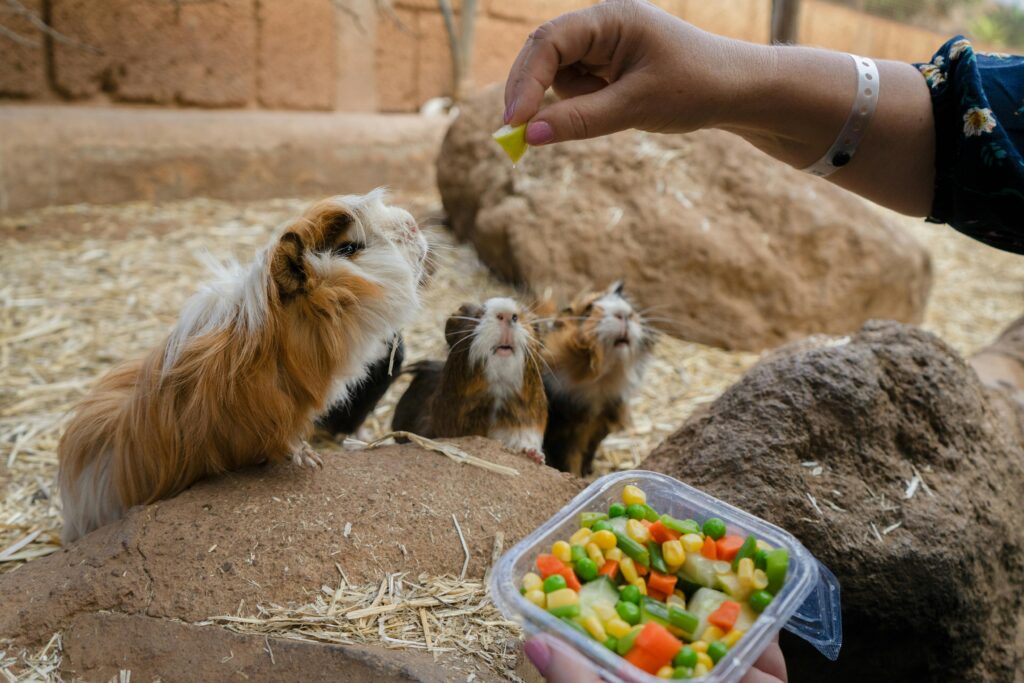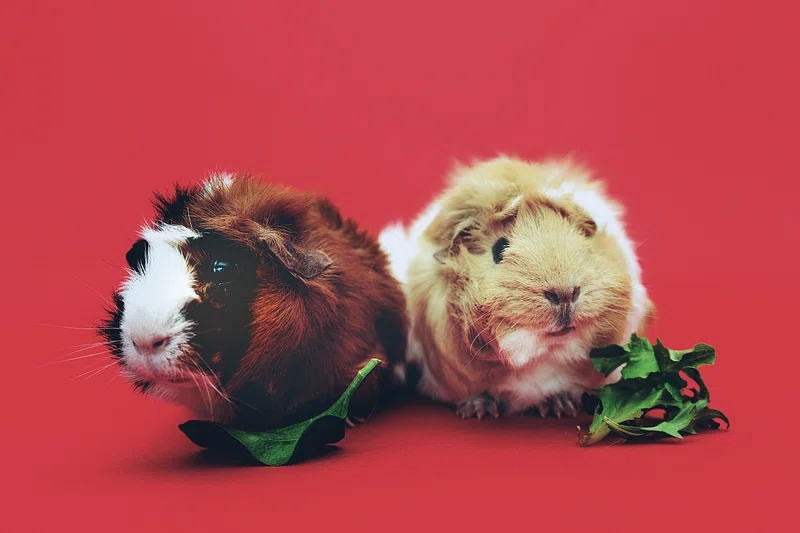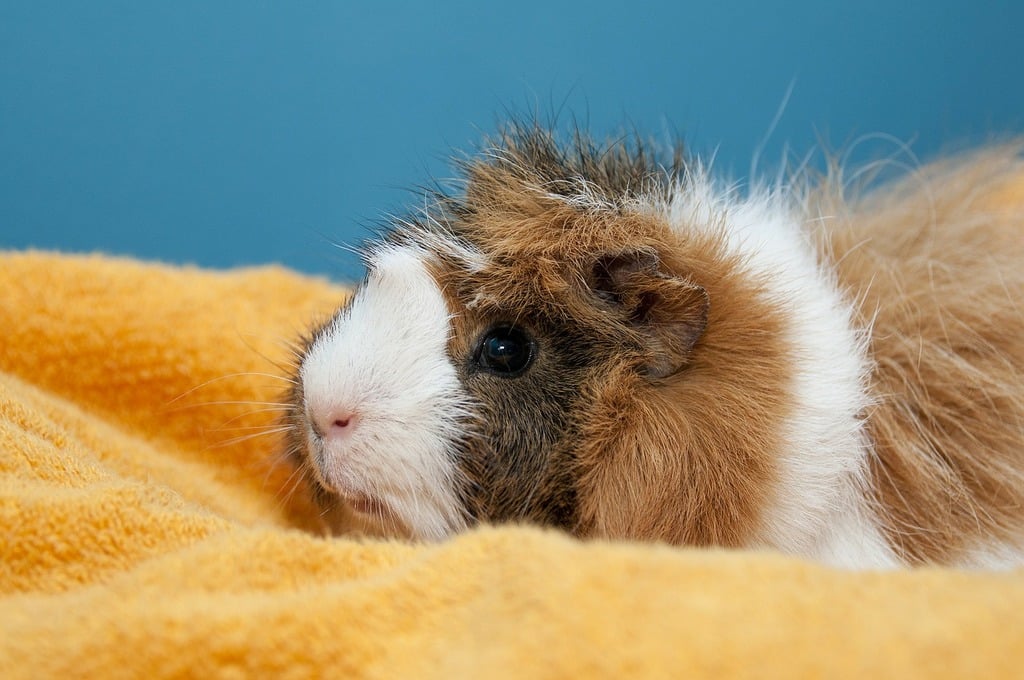Providing safe fruits & veggies for guinea pigs is not just a nice gesture; it’s an absolute cornerstone of their health and longevity. These adorable, chatty companions, unlike many other animals, have a unique physiological quirk: they cannot produce their own Vitamin C. This crucial nutrient, alongside a spectrum of other vitamins and minerals, must be diligently supplied through their daily diet. Neglecting this vital aspect can lead to severe health complications, most notably scurvy, a painful and potentially fatal disease. Therefore, understanding why a diet rich in safe fruits & veggies for guinea pigs is imperative, and how to implement it correctly, is fundamental for every responsible owner.
Why Safe Fruits & Veggies for Guinea Pigs Are a Non-Negotiable?
The dietary requirements of guinea pigs are surprisingly specific, largely due to their evolutionary history. Their inability to synthesize Vitamin C (ascorbic acid) stems from a genetic mutation that renders them unable to produce the enzyme L-gulonolactone oxidase. This is a shared trait with humans and some other primates. In the wild, their ancestors would have consumed a constant supply of Vitamin C-rich plants. In a domestic setting, it becomes our responsibility to replicate this essential intake.

The Vitamin C Lifeline:
The most critical reason to include safe fruits & veggies for guinea pigs in their daily meals is for their Vitamin C content. Vitamin C is a powerhouse nutrient involved in numerous bodily functions:
Collagen Production:
It’s absolutely vital for the synthesis of collagen, the primary structural protein found in connective tissues, skin, bones, cartilage, teeth, and blood vessels. Without adequate Vitamin C, collagen production falters, leading to brittle bones, weak joints, poor wound healing, and fragile blood vessels.
Immune System Support:
Vitamin C acts as a powerful antioxidant, bolstering the immune system. It helps white blood cells function effectively, enabling guinea pigs to ward off infections and diseases. A deficiency leaves them highly susceptible to illnesses, particularly respiratory infections.
Iron Absorption:
It aids in the absorption of non-heme iron (iron from plant sources), which is crucial for red blood cell formation and preventing anemia.
Excellent sources of Vitamin C among safe fruits & veggies for guinea pigs include:
Bell Peppers: Especially red, yellow, and orange varieties are packed with Vitamin C.
Leafy Greens: Romaine lettuce, green leaf lettuce, and red leaf lettuce are good choices. Avoid iceberg lettuce, which offers little nutritional value and can cause digestive upset.
Strawberries: A favorite for many guinea pigs, given in moderation due to sugar content.
Parsley and Cilantro: These herbs are not only rich in Vitamin C but also add variety to their diet.
Beyond Vitamin C: A Spectrum of Essential Nutrients
While Vitamin C often takes center stage, safe fruits & veggies for guinea pigs provide a broad spectrum of other essential vitamins, minerals, and fiber crucial for overall health and well-being. These include:
Dietary Fiber:
Essential for maintaining a healthy digestive system, preventing stasis, and ensuring proper gut motility. The fiber in fresh produce works in conjunction with the fiber from hay (which should always make up the majority of their diet) to keep their digestive tract running smoothly.
Vitamins K, A, and B-complex:
These play roles in blood clotting, vision, skin health, energy metabolism, and nerve function.
Minerals:
Potassium, calcium (though calcium should be balanced to avoid bladder stones), and magnesium are vital for nerve function, muscle contraction, and bone health.
Variety and Enrichment: Keeping Them Engaged
Just like humans, guinea pigs appreciate variety in their meals. Offering a diverse selection of safe fruits & veggies for guinea pigs not only ensures a broader nutrient intake but also keeps them mentally stimulated and prevents boredom. The different textures, smells, and tastes of fresh produce add excitement to their daily routine. A varied diet mimics their natural foraging behavior and contributes to their overall happiness and well-being.

Promoting Dental Health:
Guinea pigs have continuously growing teeth, both incisors and molars. If these teeth are not worn down regularly, they can overgrow, leading to serious pain, inability to eat, and potentially fatal complications. While hay is the primary tool for dental attrition, crunchy safe veggies for guinea pigs like carrots, celery (in small amounts), and bell peppers can also contribute to this essential grinding action, helping to keep their teeth at a healthy length.
Supporting Digestive Harmony:
A healthy digestive system is paramount for guinea pigs. Introducing safe fruits & veggies for guinea pigs gradually and consistently helps maintain a balanced gut flora. The fiber and water content aid in preventing common digestive issues like constipation or soft stools. However, it’s crucial to introduce new foods one at a time and in small quantities to monitor for any adverse reactions, such as diarrhea, which can quickly dehydrate and sicken a guinea pig.
Important Considerations When Providing Safe Fruits & Veggies for Guinea Pigs:
While the benefits are clear, responsible feeding requires adherence to specific guidelines to ensure the safety and well-being of your pet.
Moderation is Key:
Even the healthiest foods can be detrimental if given in excess. This is particularly true for fruits due to their higher sugar content. While beneficial for Vitamin C, too much sugar can lead to obesity, digestive upset, and even diabetes in guinea pigs. Think of fruits as a treat, offered a few times a week in very small portions. Vegetables can be given more liberally, but still as a supplement to their unlimited hay intake.
Prioritize Safe Choices:
Not all fruits and vegetables are suitable for guinea pigs. Some can be toxic or cause severe digestive issues. Always research before introducing a new food. General rules of thumb include:
Avoid:
Iceberg lettuce (low in nutrients, high in water, can cause diarrhea), avocado (high in fat), potatoes (and potato leaves/stems), onions, garlic, mushrooms, rhubarb, and most human processed foods.
Limit:
High-calcium vegetables like spinach, kale, and parsley should be given in moderation or rotated with lower-calcium options to prevent bladder stones. Broccoli and other cruciferous vegetables can cause gas if given in large quantities.
Stick to well-researched lists of safe fruits & veggies for guinea pigs from reputable sources like veterinary associations or experienced guinea pig rescue organizations.
Meticulous Preparation:
Always wash all produce thoroughly under running water before offering it to your guinea pig. This helps remove any pesticides, herbicides, or other chemical residues that could be harmful. Remove any seeds from fruits like apples, as these can contain cyanide compounds. Cut vegetables into manageable pieces to prevent choking, especially for smaller or older guinea pigs.
Seek Veterinary Guidance:
Every guinea pig is an individual, and their dietary needs can vary based on age, health status, and activity level. Always consult with a veterinarian experienced in exotic animals (specifically guinea pigs) for personalized dietary recommendations. They can help you tailor a feeding plan that addresses your guinea pig’s specific requirements and can advise on appropriate Vitamin C supplementation if needed, especially for sick or recovering animals.

In conclusion, a diet rich in safe fruits & veggies for guinea pigs is not merely supplementary; it’s a fundamental pillar of their care. By understanding their unique biological needs, particularly their inability to synthesize Vitamin C, and by carefully selecting, preparing, and offering a diverse range of appropriate produce, guinea pig owners can significantly contribute to their pets‘ health, happiness, and longevity. This dedicated approach to their nutrition ensures these delightful creatures can thrive and enjoy a full, vibrant life.

